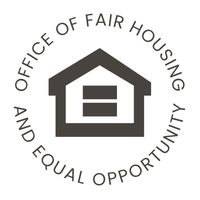Fair housing laws are designed to ensure equal opportunity in housing for all individuals, regardless of race, color, religion, sex, national origin, familial status, or disability. These laws prohibit discrimination in housing-related activities, including renting, selling, financing, and advertising properties. For landlords, compliance with fair housing laws is not only a legal requirement but also a moral and ethical responsibility. In this blog post, we’ll explore the importance of fair housing laws and why landlords must adhere to them.
- Promoting Equal Opportunity: Fair housing laws serve to promote equal opportunity and eliminate discrimination in housing practices. By prohibiting discrimination based on protected characteristics such as race, religion, or disability, these laws ensure that all individuals have equal access to housing opportunities. Landlords play a crucial role in upholding these principles by treating all prospective tenants fairly and without bias.
- Preventing Discrimination: Discrimination in housing can take many forms, including refusing to rent to certain individuals, imposing different terms or conditions based on protected characteristics, or steering individuals away from certain neighborhoods or properties. Fair housing laws prohibit these practices and hold landlords accountable for ensuring equal treatment for all tenants. By following fair housing laws, landlords help create inclusive and welcoming communities where everyone has the opportunity to secure safe and affordable housing.
- Protecting Vulnerable Populations: Fair housing laws provide essential protections for vulnerable populations, including families with children, individuals with disabilities, and minority groups. These laws prohibit discriminatory practices that can disproportionately affect these groups, such as refusing to rent to families with children or failing to accommodate individuals with disabilities. Landlords have a responsibility to ensure that their rental policies and practices do not unfairly disadvantage these populations and that all tenants are treated with dignity and respect.
- Avoiding Legal Consequences: Non-compliance with fair housing laws can have serious legal consequences for landlords, including fines, lawsuits, and damage to their reputation. Violations of fair housing laws can result in costly legal fees, financial penalties, and even loss of rental income if properties are deemed non-compliant. Landlords who discriminate against tenants based on protected characteristics may also face civil rights complaints and investigations by fair housing agencies or regulatory bodies.
- Fostering Trust and Respect: Compliance with fair housing laws is not just about avoiding legal consequences—it’s also about fostering trust and respect between landlords and tenants. Tenants who feel they have been treated unfairly or discriminated against are unlikely to renew their leases or recommend the property to others. By upholding fair housing principles and treating all tenants with fairness and respect, landlords can build trust and goodwill within their communities and enhance their reputation as responsible and ethical housing providers.
Fair housing laws play a crucial role in promoting equal opportunity, preventing discrimination, and protecting vulnerable populations in the housing market. Landlords have a legal and ethical obligation to comply with these laws and ensure that their rental practices are fair, inclusive, and free from discrimination. By upholding fair housing principles, landlords not only fulfill their legal responsibilities but also contribute to the creation of diverse, welcoming, and equitable communities for all.

